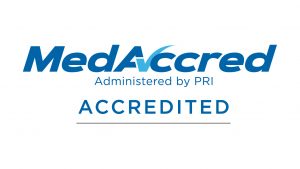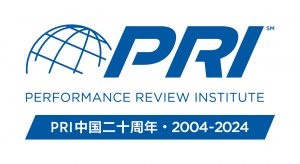Contract Review for Aerospace Suppliers (Process and Quality Planning) by William Corcoran, Esq.
In the first year of law school, one of the first courses one takes is contract law. The first lesson is the simple concept that a “contract” is a meeting of the minds between seller and buyer. The concept is elegant in its simplicity because it states that the seller and buyer agree on what is being sold and what is being purchased; and what the characteristics of the item are and the price that is acceptable to both. This simple concept contemplates a situation where the item being bought and sold is in existence and can be inspected to determine the adequacy of the item for the purposes and price that the buyer is willing to pay.
This simplicity fades as the contract contemplates performance by the seller to a set of written requirements submitted by the buyer. There are layers of complexity requiring a robust process of review. Also, one can see that when the purchase chain contains multiple parties (buyers and sellers in the chain) the process can get very complicated.
Let’s consider a situation in which a machine shop needs to have certain special processes performed on an aerospace component being made by the machine shop. What controls the special processes and whose “mind” must be met by the special process “seller”? This is the stage of the contracting process where the seller (special process shop) can and should drive the process and compel the purchaser to provide necessary information. Ultimately, the special process shop must meet the requirements of the Cognizant Engineering Authority or the Design Authority in order for the job to be done properly for the ultimate application. Some would say that meeting the exact language of a purchase order amounts to contract compliance. While perhaps technically correct, a reading of AS9100 would suggest that this is insufficient in the aerospace industry.
The problem that is usually manifested is that the request for quotation (RFQ) does not contain sufficient information for the processor. We have all had customers tell us to “do it the way you did it last time”. As the Supplier, you must be prepared to push for the actual source of the requirements. If you respond to a RFQ with a quote, you are offering to enter into a contract with your customer. It is important that you be as specific as possible so that you are certain that you understand all relevant conditions of the contract. One technique I recommend is to put language into your quote that makes the quote “subject to clarification of all terms and conditions by the parties.” This means that the quote is conditional and subject to further clarification to your satisfaction.
You need a system of contract review which is robust and disciplined; it must require the submittal of all relevant documents for review, for clarification of ambiguous elements, and compliance with engineering documents and drawings.
Another area requiring discipline in reviewing contracts is that of “incorporation by reference”. This is a favorite technique of lawyers and design authorities to include other terms and conditions by invoking some other document such as specifications or engineering change orders. Have the buyer of your services provide an affirmation that all relevant reference documentation has been provided.
After the contract is created, the order must be processed. Are there conditions to be met, such as delivery time and place, protection and packaging, methods of shipping, ITAR requirements and limitations, inspection and test certifications, key characteristics and proof of compliance, or handling of unanticipated problems such as lack of availability of specified materials for processing like process chemicals or other relevant items? Ultimately, the most important term is payment. How and when will the Supplier be paid?
This system (and the information obtained by following the system) becomes the basis for process planning. Nadcap imposes requirements so that Suppliers have a robust system that addresses this need. It also provides evidence of product realization or specification compliance and process validation which is verification that special processes are in “control” and compliant with requirements.
How does the system address changes; in processing, materials, engineering characteristics?
Ultimately, substantive changes must be approved by the Design Authority or Cognizant Engineering Authority. Can a contract be changed after commencement of processing? If so, how and by whom? Questions to ask are:
- Does the change materially alter the essential characteristic of the design of the part?
- If so, who must approve the change?
- Can a change be agreed to verbally?
- What documents or records are required to verify performance of the contract and compliance with all requirements when a change is approved?
- What evidence of compliance to requirements is needed, such as acceptance testing and process validation?
Contract Review is the “nuts and bolts” of successful special processing in the aerospace industry. The supply chain has greatly improved with the advent of Nadcap. This is in no small part attributable to conscientious and diligent contract review. My recommendation to Nadcap Suppliers is to develop a contract review checklist and identify the key elements of information one needs in order to process correctly. Most Nadcap checklists identify those elements in the form of job documentation questions. By using a checklist, the Supplier can provide a level of confidence that important elements are not missed.
eQuaLearn’s Contract Review course clarifies the requirements for Contract Review in the aerospace sector, presents the components of a Contract Review system, and explains technical requirements particular to aerospace. This training is available as a public, webinar, and onsite training. Upcoming locations for the full day training include Sheffield, UK; Toledo, Spain; and Toulouse, France. eQuaLearn’s Contract Review three-hour webinar training is a condensed version of the full day training. The last scheduled 2017 Contract Review webinar will be conducted on 7 November 2017 from 1:00pm-4:00pm EST. Contact Review onsite training is a great way for companies to train a group of employees right from their facility. Onsite training will save on time and travel costs. For more information on eQuaLearn training please visit eQuaLearn.com or contact an eQuaLearn team member.





